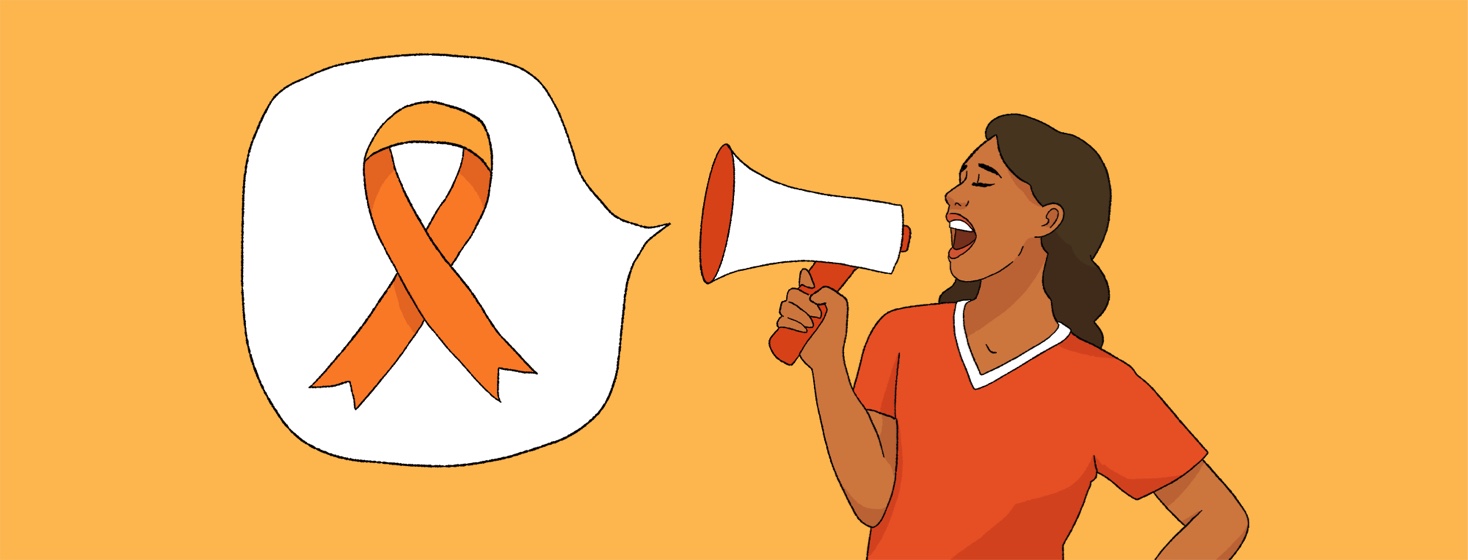Is There a Wrong Way to Handle Your Blood Cancer Diagnosis?
Living with leukemia is difficult. Seems obvious, right? But if you are not living it, sometimes it is hard to understand.
Coping with chronic myeloid leukemia (CML) these past six years has been like riding on a seesaw with all its ups and downs. And, let’s be honest: there are a lot of downs.
It’s cancer, it’s ongoing and the treatment with Tyrosine-kinase inhibitors (TKIs) often results in many side effects like severe pain, fatigue, skin issues, and damage to various organs. That’s why being confronted with certain comments sometimes gets on my nerves. It probably annoys you as well.
CML is not a lot of things
For example, who has heard, “Well, at least it is not...”
I’m well aware that CML is not a lot of things but that doesn’t make the reality easier. I worked at a non-profit that provides assistive technology for people with disabilities. Some of those clients are bedridden, can’t speak, and only have the ability to move one finger or a foot or their eyebrows to communicate. So yes, it’s very clear that there are people badly suffering. I’m lucky to still be able to walk (with a cane), talk (which some people might say is a disadvantage!), and look after myself.
I’m grateful for all that but please do not minimize leukemia. Ever.
A positivity cure?
How about “If you were more positive, you wouldn’t have these problems.”
Really? Tell my doctor that. To be honest, for the most part, my mood is usually pretty good. I have my weepy days. I get frustrated by not being able to do all that I could before. But especially since incorporating exercise into my day, I can usually keep the blues under control.
I also use music to keep my spirits up.
Singing along with my favorite songs and (pre-pandemic) playing clarinet in a symphonic band never failed to help me feel like my old 'normal' self. It was practically the only time that I would immerse myself in what I was doing and forget about CML for a few hours. Plus, my fellow band members treated me the same.
Thank you, Dr. Druker
“Well, at least you still have hair.” I’ve heard that one a few times. I do have hair. It’s patchy. The color has darkened and it is very thin now but there’s some left. I’d rather have a cure, to be honest. Hats can be cool. A remedy to make CML vanish completely would be even cooler.
But don't think I’m not happy treatments were developed to keep blood cancer patients like me alive for longer. The alternative without them is grim. Very grim. So, hats off to all the scientists including Dr. Brian Druker, who created the first line of defense drug called Gleevec. The drug (and now others) targets the molecular defect of the cancer and leaves other cells unharmed.
This revolutionary work has made it possible for us CMLers to stick around a while longer.
Let it out even if it's uncomfortable
“Don’t overdramatize the situation.” First, it’s not a situation, it’s my life. Next, I live alone so no one sees the day-to-day struggling that goes on here. I don’t talk about it often. I kept silent for more than four years about what I was going through. I downplayed everything and tried to shield others.
That’s not healthy.
It’s good to get it out. It helps with acceptance. If you talk about 'it,' it becomes real. I highly recommend talking (or writing) to express what you need to tell others about your cancer journey. Maybe communicating will help them to 'get it' a little.
Some of you may not be comfortable sharing that way. Maybe journaling is an alternative way to let it out. Whatever works. In my experience, holding things back proved detrimental to my health and well-being.
However you decide to handle your diagnosis is your business alone. People making the comments may not realize that they are hurtful to us.
There is no right or wrong way to deal with blood cancer; there is only your way.

Join the conversation